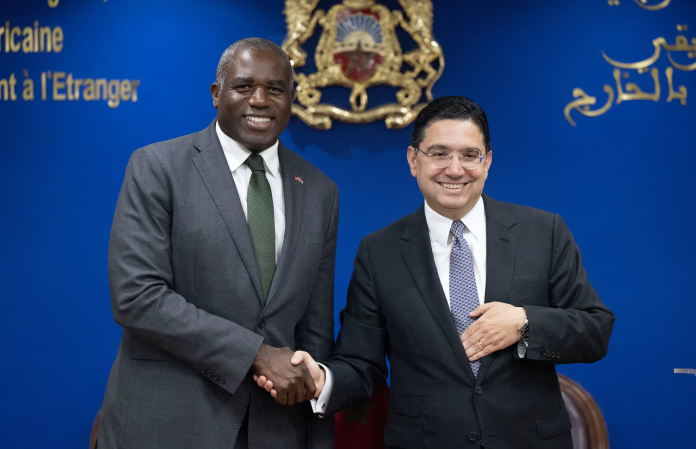The United Kingdom formally declared support for Morocco’s autonomy proposal to resolve the decades-long dispute over Western Sahara.
During a visit to Rabat on Sunday, UK Foreign Secretary David Lammy described the 2007 plan as the “most credible, viable and pragmatic basis for a lasting resolution of the dispute,” abandoning Britain’s prior stance backing self-determination for the territory.
Lammy emphasised the urgency of resolving the conflict before its 50th anniversary in November 2025.
The time for a resolution and to move this issue forward is long-overdue, and would strengthen the stability of North Africa.
He also urged Morocco to “expand on details of what autonomy within the Moroccan State could entail” while endorsing UN-led negotiations. Moroccan Foreign Minister Nasser Bourita hailed the shift as “historic,” noting it accelerates diplomatic momentum and aligns the UK with the US and France as the third permanent UN Security Council member to endorse Rabat’s plan.
The move coincides with strengthened bilateral ties. Both nations signed cooperation agreements covering healthcare, innovation, and infrastructure, with Lammy highlighting opportunities for British firms in Morocco’s preparations to co-host the 2030 World Cup. Significantly, Lammy linked the policy shift to reducing UK dependence on US defence suppliers.
A joint statement confirmed UK Export Finance may fund projects in Western Sahara as part of a £5 billion commitment to Moroccan initiatives.
The dispute centres on the mineral-rich former Spanish colony, largely administered by Morocco since 1975 but claimed by the Algeria-backed Polisario Front. A UN peacekeeping mission (MINURSO) has monitored a fragile ceasefire since 1991, though clashes resumed in 2020 after Morocco reopened a key route to Mauritania. While Morocco controls 80% of the territory, the UN still classifies Western Sahara as a “non-self-governing territory”.
